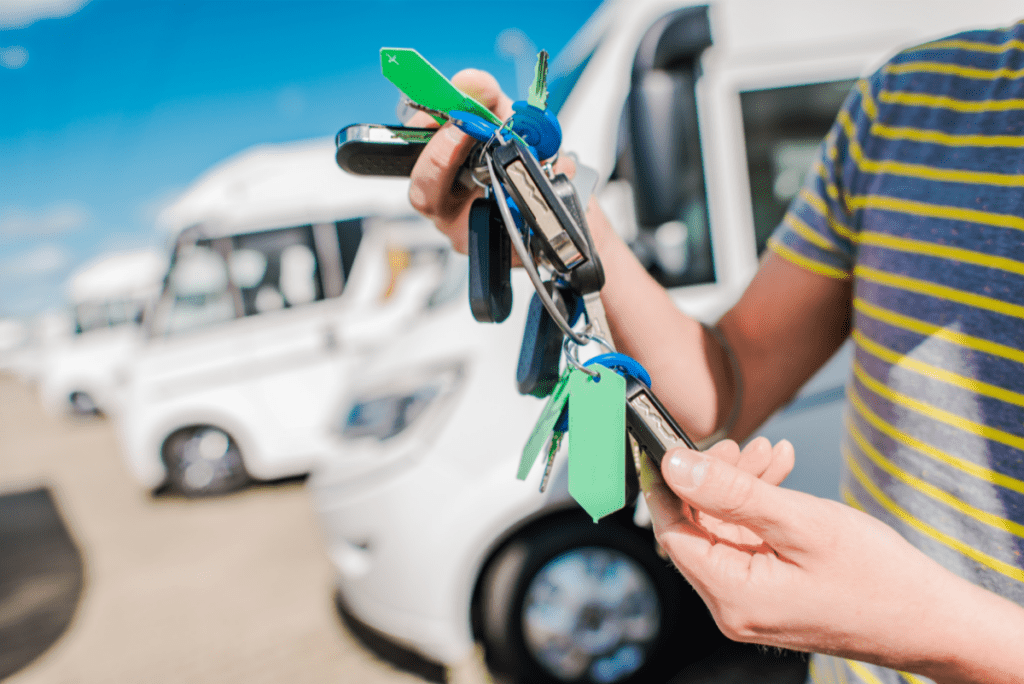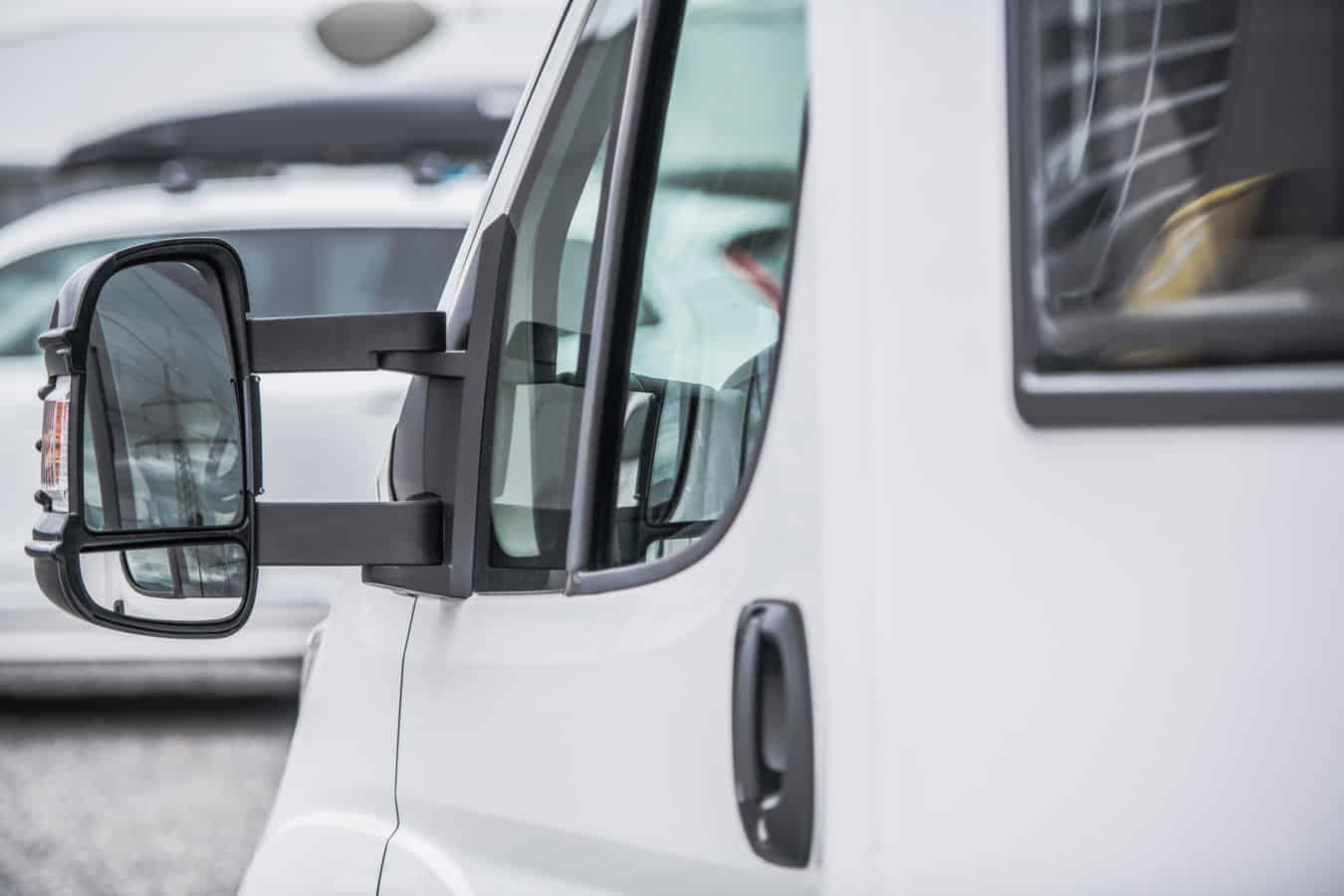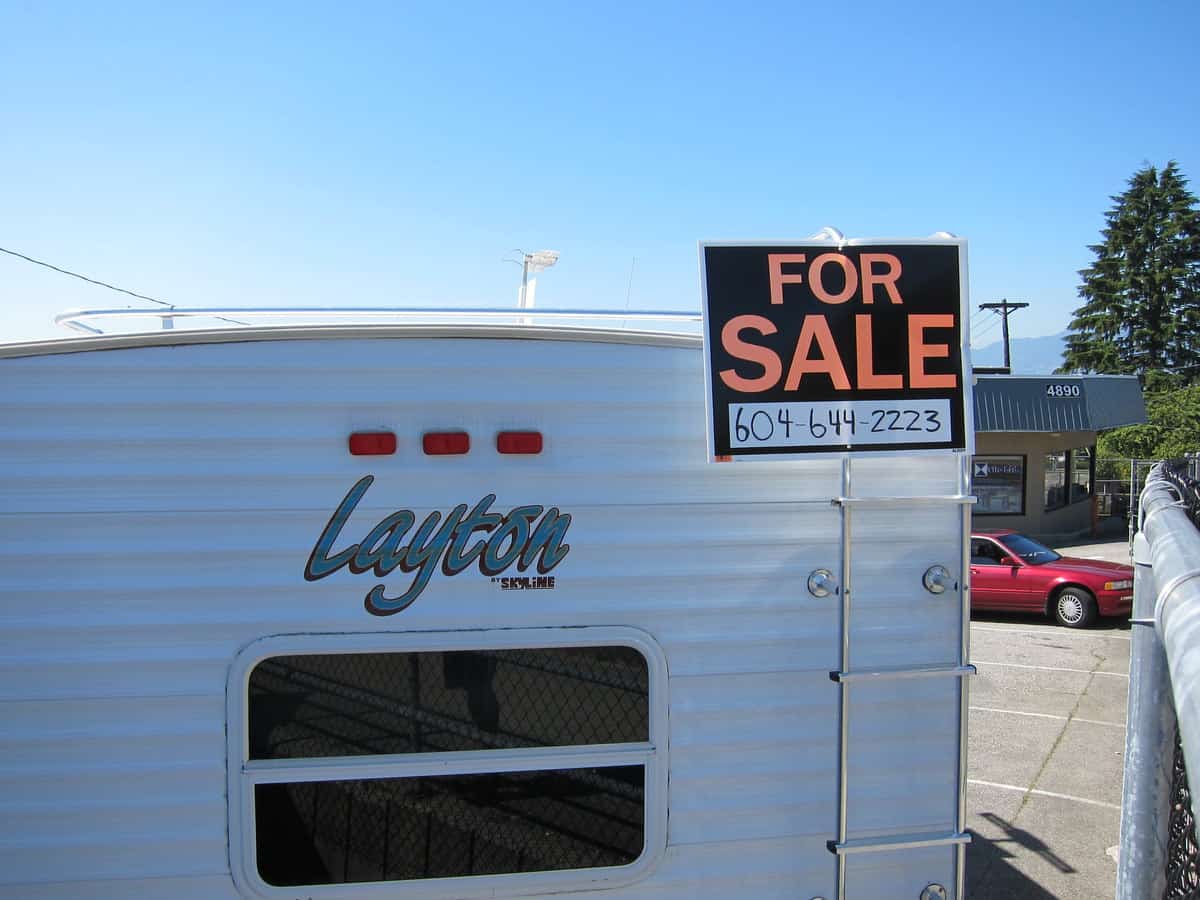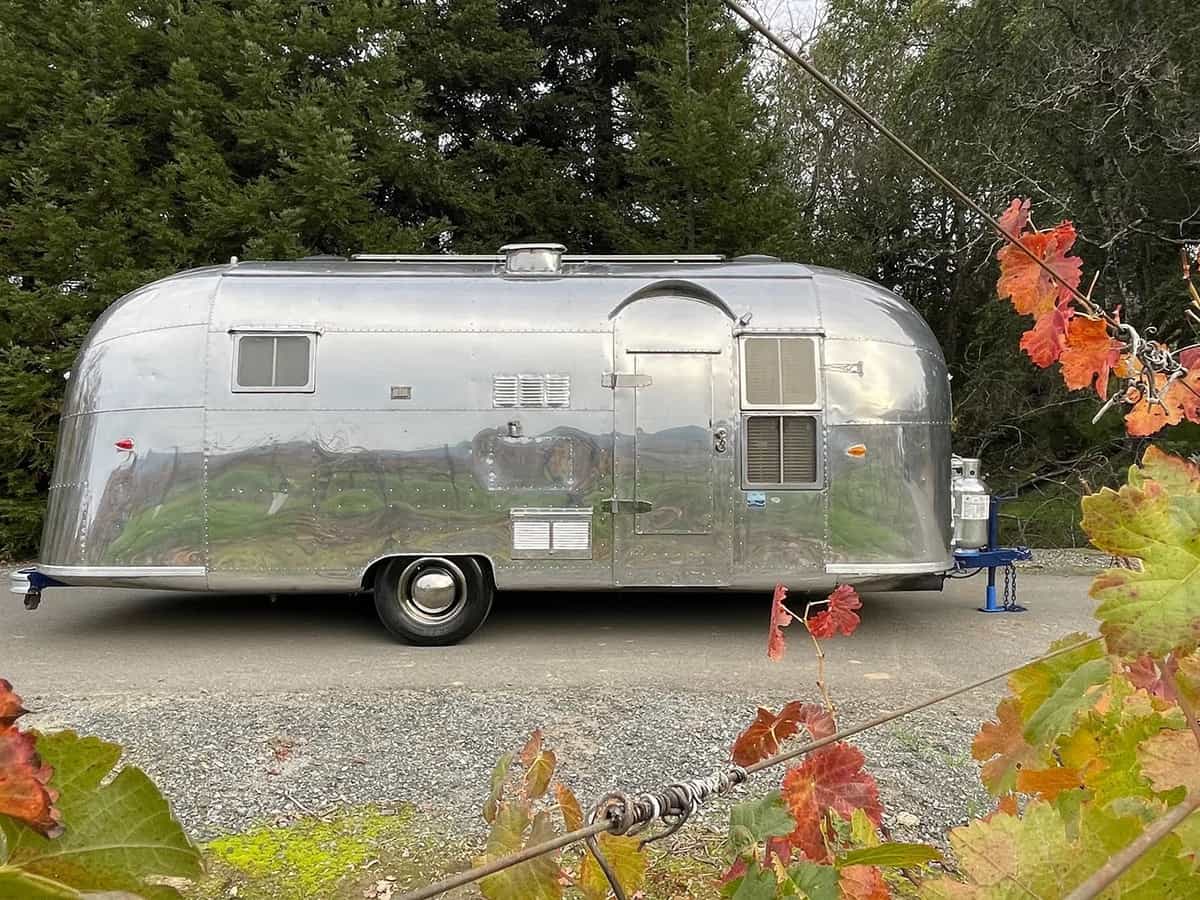
Protect Yourself Before Selling An RV Privately
If you are thinking about selling an RV privately, there are some things you should know before you put your rig up for sale.
1. Safety first
Never meet a buyer alone. If it is a drivable type of RV, ensure that you (and whomever you bring) ride with the buyer if they are seeking a test drive. If you absolutely must meet a buyer alone, be sure to meet in a public space. When you first arrive, ask to take a picture of them holding their driver’s license, and then immediately send the image to a trusted friend or relative who is expecting to receive it after discussing the situation with them ahead of time.
Do not disclose any non-relevant personal information. Remove any personal information, documents, and belongings from the vehicle prior to showing it to potential buyers.
2. Only accept cashier’s checks or certified bank checks
Your bank can verify and validate a cashier’s check with the issuing bank or financial institution. Check ahead of time with the bank on proper procedure and be sure to perform the transaction with the buyer during business banking hours. The buyer will have to acquire this monetary instrument ahead of time, and this helps to make sure they are serious about the purchase and weeds out those who aren’t.
3. Disclose any major issues or accidents
Most states require by law that a seller of a vehicle discloses any past flooding or accidents to a vehicle that have occurred. Failure to present this information or have the buyer sign a document indicating acknowledgement of the details can reduce the chance of a future lawsuit.
Withholding important information can be considered fraud. Always be a good seller and answer legitimate questions about the vehicle truthfully. You are not required to impart how much you paid for the vehicle. If you are turning a profit: congratulations.

4. Do not hand over the title until funds are received
If you are accepting some form of personal or business check, remember that a stop payment can be issued by the account holder. If this happens, not only will you have no RV and no title, but you’ll also have a returned check fee from your bank.
Determine how the buyer plans to pay you, and if they indicate a personal check is their intention, inquire with your bank ahead of time to determine how best to proceed to ensure the funds are available. If the bank is local, offer to go to the buyer’s bank with them to convert the check into a cashier’s check, written out to your name. This will minimize any fraudulent or malicious behavior on the part of the buyer. If they are hesitant, do not go through with the deal.
Letting the buyer know this ahead of time, before meeting, will help reduce any malicious intent as well as make sure they have allotted the correct amount of time.
5. Make sure the buyer signs the title and a bill of sale upon receipt
You may not know this, but if a buyer assumes possession of a vehicle and is later involved in an accident, they can claim that it isn’t their vehicle and that they are only borrowing it. With the buyer signing the current title in the appropriate transfer signature location, this proves that they did indeed take ownership.
In addition, create a printed document (two copies) with the buyer’s legal name, your name as the seller, the make, model, and year of the vehicle or RV, the date of purchase, the mileage (if a drivable), and the sale amount. You should both, as buyer and seller, sign each copy and keep one for your records. After the buyer has signed the title, take a picture of the document (or have a copy made).
It is extremely important that you do not place yourself in a position of liability for deliberate, accidental, or negligent actions that happen with the vehicle once it leaves your control. Once you have a copy of these documents, be sure to file them with the correct department for your county or state. And don’t forget to correctly report the sale of the vehicle on your taxes according to IRS guidelines.
6. Use a reputable marketplace for the transaction
Using a by-owner online marketplace, such as National Vehicle, will help to reach and screen potential buyers, provide a fair valuation, and ensure a proper paper trail. Some marketplaces will cross-promote your for-sale RV in other marketplaces, too. It can also result in a higher sale price due to more buyers being reached.
One of the best parts about RVing is engaging with the community of traveling enthusiasts. iRV2 forums allow folks to chat with other RVers online, and get other perspectives on everything RVing, including products, destinations, RV mods, and much more.
Related articles:





1. **Overpayment Scam**:
– The scammer poses as a buyer and offers to purchase an RV listed for sale.
– They send a cashier’s check for an amount greater than the asking price and then ask the seller to wire the difference back.
– Later, the cashier’s check bounces, and the seller is out the amount they wired plus any fees.
2. **Fake RV Rental**:
– Scammers list non-existent RVs for rent on online platforms.
– Interested renters are asked to send a deposit or even the full rental amount via a cashier’s check or wire transfer.
– Once the payment is made, the scammer disappears, and the renter is left without an RV or their money.
3. **Phishing Scam**:
– The scammer contacts someone selling an RV and expresses interest.
– They then ask for personal information or banking details, supposedly to make the payment.
– Instead, they use this information for identity theft or unauthorized transactions.
4. **Title Scam**:
– A scammer may sell an RV without having a clear title or even a stolen RV.
– The buyer, unaware of this, may end up with an RV they can’t legally own or use.
5. **Fake Cashier’s Check**:
– Scammers can create very convincing counterfeit cashier’s checks.
– Sellers might release the RV once they receive the check, thinking it’s as good as cash.
– By the time the bank identifies the check as fake, the scammer and the RV are long gone.
6. **Payment Plan Scam**:
– A scammer may agree to a payment plan for an RV.
– They might make the first few payments using cashier’s checks, but these checks will eventually bounce, leaving the seller without their RV and payment.
7. **Too Good To Be True Listings**:
– Scammers list an RV for sale at an unbelievably low price to attract victims.
– They may ask for a deposit or full payment upfront, then disappear once they have the money.
To protect yourself:
– Always meet in person and in a safe, public location.
– Avoid wire transfers or cashier’s checks; consider using escrow services or face-to-face cash transactions.
– Verify the authenticity of a cashier’s check with the issuing bank.
– Always check the RV’s title and VIN to ensure it isn’t stolen or encumbered.
– Be cautious if the deal seems too good to be true; it probably is.
Remember, always trust your instincts. If something feels off, it’s okay to walk away.
You can use online platforms, local classifieds, camper-specific forums, or even work with a consignment dealership if they are willing to handle a sale with a lien.
Selling RVs to a sister of a friend. She wants to postdate a check for after we will leave camp and how do we resolve this to protect ourselves
I sold a travel trailer to a private party on payments. They quit making the payments but when I went to get the trailer back I found that they had sold it to someone else. I still have the paperwork to the trailer. Can I go hook up to my trailer and take it back
If she will not out i sold here stop paying resale pay title in 2nd person name they move out can i move trailer
Should I give a sign title to Richey auction Brothers they don’t even have a buyer yet they want me to sign the title over to them and send it to them in the mail without receiving any money it’s not even on their auction yet they plan on posting it and they sent me a form asking me my bank information showing me a check but they don’t even have a buyer yet would you sign your title and give send it in the mail to them signed without any money or a buyer yet? Thanks I need help
Do not sign over title to no one, ever, unless you have payment in your hands. You will lose your rv to those swindlers. Walk away!
Take it from a long time Auction Buyer and seller- that is standard procedure for all auctions. They are legitimate and it is required. You get it back if your item doesn’t sell. Ritchie Bros is one of the oldest and best in the business.
How much $$/what is fee for listing+selling w/NationalVehicle—it doesn’t say on their website!
Great avticle. Thanks
For at least 15 years cashier’s checks are the most dangerous and least reliable way to receive payment for anything. You cannot buy a home and have a real estate closing at any Title Company with a cashier’s check at closing. Wire transfer is the only safe way to get paid or if they want to give you cash do not accept the cash yourself or even touch it but go to your bank and ask the head teller to verify the cash that it is not counterfeit. If you accept the cash and you make the deposit and it turns out to be counterfeit your bank will expect you to pay them back. This is why wire transfer is used on all commercial and residential real estate transactions. Another huge problem with cashier’s checks is that sometimes it takes a month before it is discovered it is a counterfeit and your RV is gone and you are personally financially liable for the counterfeit cashier’s check to your bank.
Excellent tips! thank you for your imput. we will use your advice.
Happy Trails!
Don’t forget to time date the bill of sale as well. That way when they wreck it on the trip home, there is proof ownership changed hands at a time of day.
Good advice. In Louisiana, both parties have to sign the title in front of a notary. I learned this the hard way. The buyer has a bill of sale until they get the title.
Don’t forget sales tax!